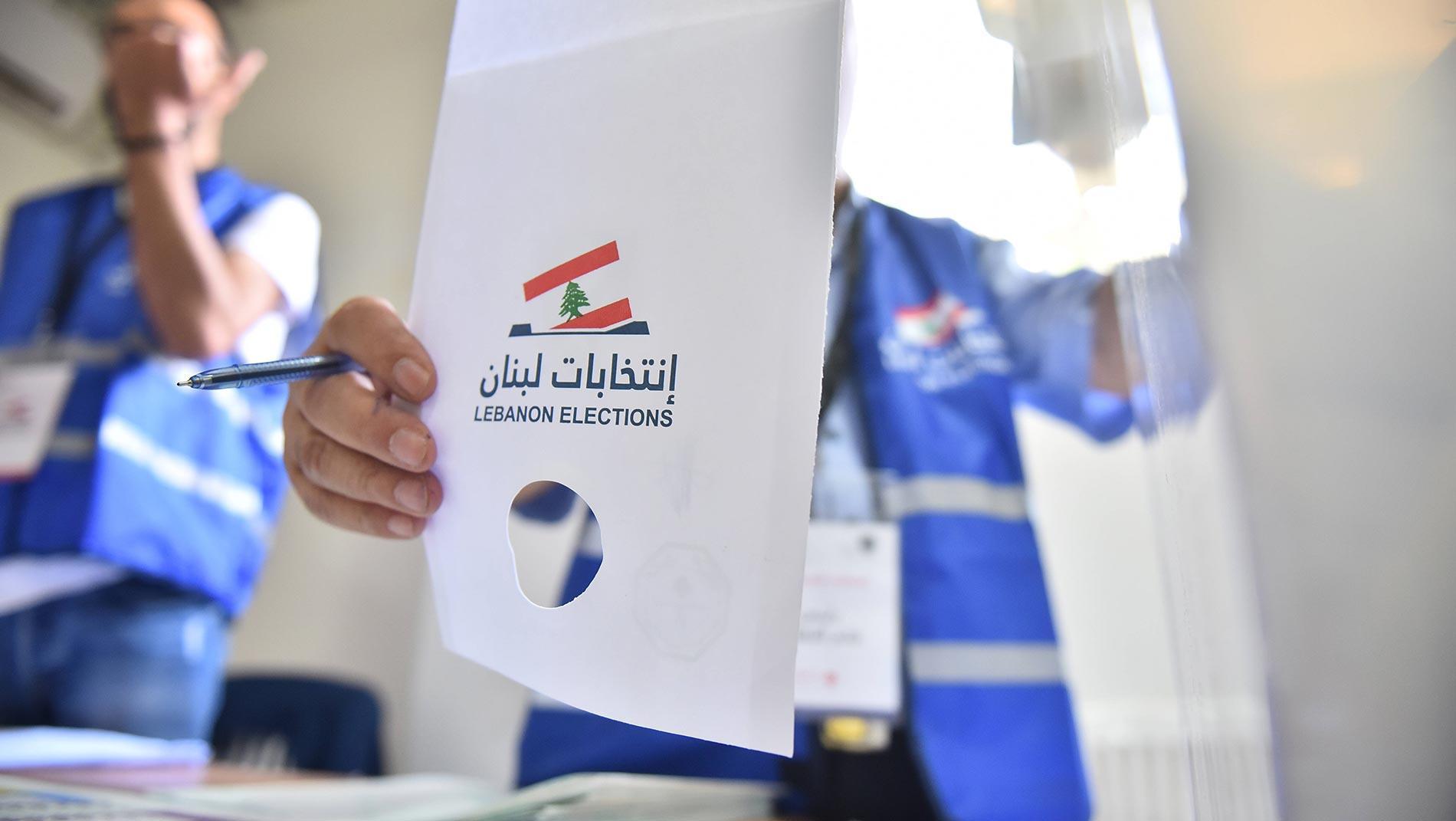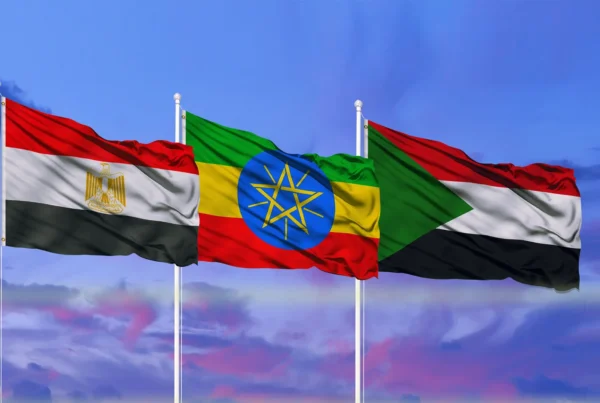In May 2022, Lebanon held parliamentary elections for the first time since the 2019 political revolution and the 2020 Beirut blast. Lebanon now faces a political corruption crisis and economic depression caused by its ruling elite. Based on the new parliament’s re-election of the same Speaker of the Parliament on 31 May 2022, it is unlikely that change will take place in Lebanon’s dire situation that requires an IMF bailout.
Lena Krikorian, 30 June 2022
Arabic version | Russian version | Spanish version
On 15 May 2022, Lebanon held its first parliamentary elections since the mass political uprising which started on 17 October 2019 and was spearheaded by Hezbollah and Amal to oust the government, Prominent think tanks and analyses such as from the Carnegie Endowment for Peace predicted that this election would be the most chaotic since the country’s independence in 1943, and that it unfortunately would not change the political fabric or be an agent of change for Lebanon and its people. According to the Atlantic Council, the May parliamentary elections had a low voter turnout of only 41%, and the Hezbollah-backed bloc still retains the largest number of seats in the parliament despite losing its majority. The European Union’s Election Observation Mission to Lebanon in 2022 found that the ruling establishment condoned and still engages in vote-buying and ballot-box stuffing and destruction, undermining the country’s chances for reform and new leadership. Furthermore, Lebanon’s protests and dire economic crisis made it difficult to provide electricity for voting booths.
Protestors took to the streets in a youth-led movement in 2019 against corruption, governmental mismanagement, and a nearly three-year-long economic depression. According to the International Politics and Society Magazine, since October 2019 Lebanon’s national currency has lost 95% of its value, prices have risen by 200% and approximately 80% of the Lebanese population live below the poverty line. The COVID-19 pandemic and the Beirut port blast in 2020 that killed nearly 200 people and further devastated the country’s economy also added fuel to the political fire that began in October 2019. More recently, in March 2022, the banking sector went on strike because President Michel Aoun froze the assets of Lebanon’s six largest banks. On 21 March 2022, Lebanon’s central bank governor Riad Salameh who was in power since 1993 was charged with money laundering and illegal enrichment. At present, according to Al Jazeera, water shortages and power cuts are rampant throughout the country, and Lebanon has experienced more than a 1000% increase in food prices, calling for aid and remittances from the Lebanese diaspora. The World Food Program and the World Bank found that nearly 50% of households had no access to food, medicine, and other basic goods.
In a similar vein, the United Nations and the World Bank blamed Lebanon’s leaders for the current, dire financial crisis, as the World Bank called Lebanon’s economy a “deliberate depression.” According to the Council on Foreign Relations, the government and public sector as a whole “is rife with bribery and nepotism, and public services are virtually nonexistent.” Many Lebanese migrants fled to neighboring countries and it is highly likely that more migrants will flee the country that already hosts the world’s largest refugee population per capita. Given these astounding findings, it is unrealistic to expect a smooth and democratic electoral process. As a result, the U.S. and EU did not commit significant funds to Lebanon’s Supervisory Commission for Elections. The lack of Western support indicates that Lebanon is considered a lost cause unless it becomes open to systemic political leadership changes.
As a country with a diverse ethnic makeup and sectarian power-sharing system, Lebanon’s parliament is evenly divided between Christians and Muslims. The premiership is reserved for a Sunni Muslim, the president should be a Maronite Christian, and the speaker of parliament is designated for a Shia Muslim. Former prime minister and leader of the largest Sunni Muslim voting bloc, Saad Hariri, held the premiership for the past three terms. Hariri quit and encouraged voters to boycott the elections, leaving a power vacuum for the Sunni parliamentary bloc. As a result, many people were not inclined to vote because there was little reason to believe that their votes would matter. However, according to CNN, voters turned out in masses in search of a change in leadership.
The recent elections resulted in a loss in majority support for the current government, which has served the interests of Iran-backed and pro-Assad Shiite Muslim militant group Hezbollah. The elections also led to an increase in Independents, who won 13 of the Parliament’s 128 seats. Despite being popular in the past owing to its anti-Western stance and previous aid, the days of Hezbollah providing support when the government was incapable of doing so are long over. However, recent voter support for the Lebanese Forces now seek to disarm Hezbollah, which has been referred to as “the world’s most heavily armed nonstate actor” by the Center for Strategic Studies. Nevertheless, a Hezbollah-backed coalition still holds the majority of seats in the current parliament.
On 31 May 2022, Lebanon’s Parliament re-elected Nabih Berri for the seventh consecutive term as Speaker of the Parliament. While many Lebanese voters hoped for change as they took to the polls, the re-election of Nabih Berri is the embodiment of the deeply flawed and corrupt political system that traps Lebanon in its dire economic crisis. Berri gained his legitimacy during and after the Lebanese Civil War in the 1990s that brought bloodshed by warlords that still constitute Lebanon’s corrupt ruling elite.
Despite the 13 new seats won by independent party members seeking to change the corrupt political system, the newly elected 15 May 2022 Parliament re-elected Berri, who has held onto power for nearly three decades. Berri runs the Shia Amal political movement that has a working relationship with Hezbollah, enabling political power to remain unchanged in the country. As such, it is unlikely that the new parliament and recently elected speaker will lift Lebanon out of its economic depression and dire parliamentary situation. The country still favors traditionalist parties and Hezbollah-backed coalitions that hinder Lebanon from achieving any real change. Under these conditions and the ongoing corruption, the international community is unlikely to provide aid for Lebanon to exit its deeply entrenched financial and political crisis.







